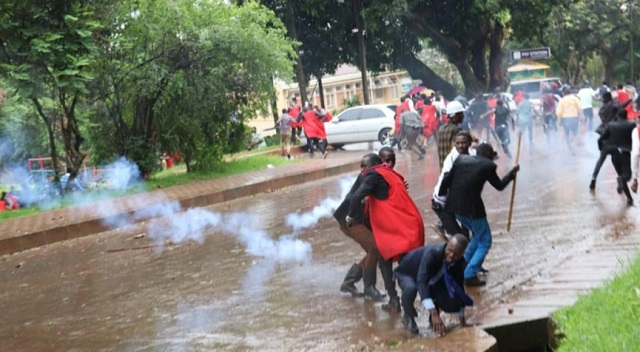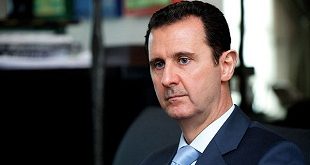
When the dust settled, the Deputy Vice Chancellor returned from his hideout and we started counting the cost. As usual, it was difficult to pin-point the real culprits for prosecution. Secondly, we tried to avoid taking any disciplinary action against any student, as such an act would inflame further the already tense situation; so we had to think and act proactively. We received numerous suggestions as to how we could handle a similar situation in the future. There was a suggestion that we should lay off the old security guards and recruit new ones.
Fortunately, we were fully aware of the weaknesses in the Security Department. Infact, we had started doing something about it, and had begun with the recruitment of new and younger guards, educated up to the Uganda Advanced Certificate of Education level or its equivalent. The new guards were being trained by the Uganda Police. We had also successfully secured the services of a senior Police Officer, on secondment from the Uganda Police Force, to head the department and help with the recruitment, training and retraining of the guards.
Secondly, we considered the possibility of equipping our security guards with firearms, but after serious consideration, we dropped the idea because of its inherent dangers. We believed that guns in the hands of the security guards could create more problems than we were trying to solve. Students by nature were provocative and were in the habit of insulting the security guards, calling them “academic dwarfs”. We reasoned that a security guard provoked into anger would not hesitate to use the gun to get even with the students, which would be a disaster.
We were also not sure how our armed guards would react when confronted by a mob of angry students; or what might happen if a mob of students on rampage broke into the armoury or overpowered the armed guards and ran away with the loaded guns. We had no ready answers to these questions. In the absence of good answers, we thought it was wiser to keep the campus gun-free. That way, we were playing it safe. Furthermore, to keep and use guns, the university was required to register the Security Department as a security organisation. All these were good proposals, but they required in-depth study before we could implement them. We therefore opted for simpler alternatives.
Another student shot dead
We requested the Police to stay on for a while to reassure the students that, in the aftermath of the shooting of Alex Adega, they were providing the university with sufficient security cover. This was a backstop measure, as we worked out the more detailed security measures. In fact, soon after that shooting incident, the Uganda Police and the Military Police kept their full presence on the campus and everyone was beginning to feel secure once again. However, the murderers were still at large and plotting new attacks on the university. As the Police and the Military were reducing their numbers, another student, this time a female residing in the CCE Complex was shot dead outside her room, on March 31, 2001. Apparently, the gunman had sneaked into the university unnoticed. The female, Barbara Mwesigye, a second year Bachelor of Library and Information Science (BLIS) student who hailed from Mbarara District had been out and someone had brought her back and dropped her near her hall at about 4 o’clock in the morning. I was in Entebbe, attending a meeting of the HYPERLINK “mailto:I@mak.com” \h I@mak.com when I was informed of the incident, which occurred in the early hours of a Saturday.
Professor Elly Sabiiti who was then Dean of Agriculture conveyed the news, which someone at Makerere had called and given him, to me. My first reaction was “Surely, not again”. I was devastated. I failed to comprehend how, in a space of a month, a gunman would once again dare enter the university campus and shoot dead another student, moreover in the presence of the Police.
I could not help wondering whether this was not part of a grand conspiracy to sabotage us! But the trouble was that I had no way of figuring out who the conspirators were. Before I received communication from Professor Epelu Opio and Mr John Ekudu, I was at a loss as to what to do. Fortunately, Professor Epelu Opio called soon after. After a rundown on the information gathered so far about the circumstances under which the student had met her death, he assured me that he was working closely with the Dean of Students and the Police to diffuse the tension. He was trying to avoid a repeat of what happened when Alex Adega was shot dead. He further assured me that although, and as would be expected, the students had started demonstrating, the demonstrations were so far peaceful and confined to the university campus.
The Police were determined to keep it that way so there was no need for me to rush back to the university. If the situation warranted my presence, he would let me know. I tried to concentrate on the work I was supposed to be doing at Entebbe with a lot of difficulty. All the morale I had at the beginning of the meeting had evaporated at the news of another fatal shooting incident at the university. Throughout the day, I kept in touch with my colleagues at Makerere by phone. Fortunately, with the timely intervention of some Ministers and other senior Government and security officials like Captain Francis and Colonel Mayombo, the crisis ended without damage.
By the time I returned from Entebbe in the evening, all was quiet, but I would have expected most students were in a sombre mood and grief-stricken. They too appeared to be confused. They were not sure who was next on the killers’ list. After the burial of Barbara Mwesigye, we intensified our efforts to beef up security. Even President Museveni was concerned about the killing of students. He paid a personal visit to the university, first to convey his condolences to the bereaved families of the dead students and to the university community. Secondly, he wanted to familiarise himself with the kind of security arrangements that were in place at the university. He gave us many tips on how we could improve on our security and ensured that the Military Police that had left the university would be returned until the wave of insecurity the country was experiencing at that time was brought under control. Unfortunately, the killers were still at large, but the President assured us and the country of the Government’s determination to find the killers and bring them to book.
****
Excerpts from “My Experience; The Return to Makerere: My Long Years at Makerere as Vice Chancellor (1993 – 2004).
 The Independent Uganda: You get the Truth we Pay the Price
The Independent Uganda: You get the Truth we Pay the Price


